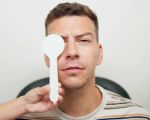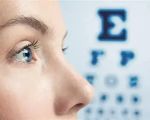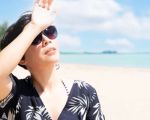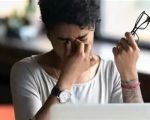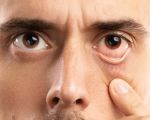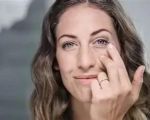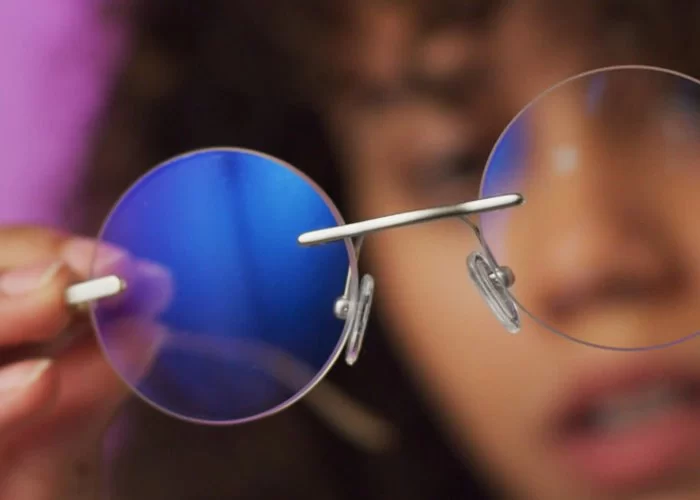
- what-is-blue-light-from-screens
- how-blue-light-affects-our-eyes
- how-to-protect-eyes-using-filters-and-glasses
- choosing-right-blue-light-protection
- real-user-story-vision-improvement
- other-smart-habits-to-protect-eyes
- expert-insight-when-to-seek-help
1. What Is Blue Light from Screens?
Blue light is a high-energy visible (HEV) light emitted by the electronic screens we use every day—phones, laptops, TVs, tablets. Unlike natural blue light from the sun, artificial blue light is more intense and prolonged, especially during night-time usage.
It’s not just a tech problem—it’s a health concern. That’s why understanding how to protect eyes from harmful blue light emitted by electronic screens with filters and glasses has become essential in the digital age.
2. How Blue Light Affects Our Eyes and Sleep
2.1 Eye Strain and Digital Fatigue
After hours of staring at screens, it’s common to feel burning eyes, blurred vision, and even headaches. These are classic symptoms of digital eye strain, often caused by blue light exposure, which scatters more in the eye and reduces contrast.
2.2 Disrupted Sleep Cycles
Blue light suppresses melatonin, the sleep hormone. Using devices before bedtime makes it harder to fall asleep and affects the quality of your rest. Over time, this can result in insomnia or chronic fatigue.
2.3 Potential Long-Term Risks
Emerging research suggests long-term exposure to blue light may increase the risk of macular degeneration—a leading cause of vision loss. While the studies are still ongoing, eye health experts now urge proactive protection.
3. How to Protect Eyes Using Filters and Glasses
3.1 What Are Blue Light Filters?
Blue light filters are software-based or physical solutions that reduce HEV light emitted by screens. Apps like Night Shift (Apple) or Night Light (Windows) shift screen color temperatures to warmer tones. Physical filters can be attached directly to monitors.
3.2 The Power of Blue Light Glasses
These specially designed lenses filter out high-energy blue light without distorting vision. Ideal for professionals and students alike, they can reduce eye strain by up to 60%. Modern designs look like regular eyewear, making them perfect for daily use.
At Eye Docs, we offer an expertly curated collection of blue light blocking glasses that fit any style and need—whether for work, gaming, or nighttime reading.
3.3 Combining Both for Maximum Protection
Using both a screen filter and blue light glasses provides a double layer of defense. It’s especially helpful for people working long shifts or those with sensitivity to screen lighting.
4. Choosing the Right Blue Light Protection for You
4.1 Determine Your Screen Time Habits
If you're using screens for 2–3 hours a day, software filters may be enough. For those with heavy usage (8+ hours), glasses are almost mandatory. Combine both for night-time protection.
4.2 Prescription vs. Non-Prescription Lenses
Blue light glasses come in both variants. If you already wear prescription glasses, many optical shops and platforms like Eye Docs provide blue-light protection upgrades to your current lenses.
4.3 Style and Fit
Comfort is key. Look for frames that are lightweight and well-fitted. Oversized frames often offer more coverage and are trending right now—perfect for fashion-conscious users.
5. Real User Story: A Student’s Turnaround
Jenna, a 24-year-old graphic design student, used to suffer from constant headaches and blurry vision after long nights working on her tablet. A friend suggested she try blue light glasses from Eye Docs. Within two weeks, her symptoms eased.
She now combines a matte screen filter with glasses and swears by the improvement in her sleep and focus. Her story mirrors that of thousands who’ve underestimated the impact of blue light—until they took action.
6. Other Smart Habits to Protect Your Eyes
6.1 The 20-20-20 Rule
Every 20 minutes, look at something 20 feet away for 20 seconds. This relaxes your eye muscles and helps prevent digital fatigue.
6.2 Adjusting Screen Brightness
Keep your screen brightness matched to your environment. Too much contrast can overwork your eyes. Also, avoid using devices in total darkness.
6.3 Limit Screen Time Before Bed
Try to unplug at least an hour before sleep. This simple habit can dramatically improve your sleep quality, especially when combined with filters or glasses.
7. Expert Insight: When to Seek Professional Help
If you experience chronic eye discomfort, blurred vision, or headaches despite using filters and glasses, it’s time to consult an eye care professional. You might need customized solutions or have underlying conditions like dry eye or astigmatism.
Clinics and trusted platforms like Eye Docs offer not just protective gear but also consultations, vision testing, and support tailored to screen-heavy lifestyles.

